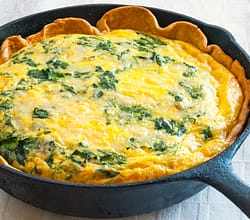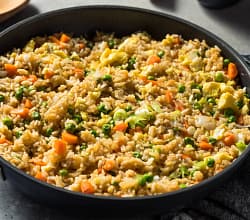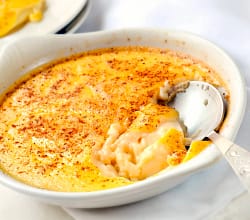If you are used to eating eggs and creating great recipes with eggs, it is likely that you have heard of egg whites being a suitable substitute. Just by carefully cracking an egg and allowing only the clear liquid to fall out, you can easily separate egg whites from whole eggs at home. You can then use the egg yolk in other ways, such as cooking it and putting it in your morning sandwich. You may also just buy egg whites in a carton at your grocery store. But what is different about egg whites without the yolk and why should you use them? As it turns out, there are quite a few differences between egg whites vs whole eggs. If you plan on using them, it is important that you know to what extent you can use them in your diet.

Health Concerns
Firstly, it is important to know the health issues of egg whites vs whole eggs. A far greater number of people suffer from egg white allergies and food intolerance than egg yolk allergies. Even though most of the population outgrow egg allergies by the age of five, a certain percentage of the population still cannot eat them. Because egg white allergies are more common than egg yolk allergies, it is advised that you speak with a dietician first if you have never eaten egg whites before.
Additionally, just as with egg yolks, egg whites risk being contaminated with Salmonella. When cooking with egg whites, take special care to cook them thoroughly and give the whites time to solidify completely. If uncooked egg whites need to be used for certain recipes, make sure you buy eggs from a trusted and reputable source.
Finally, it is not recommended that you consume egg whites daily. The reason for this is that your body may suffer from biotin deficiency. This is paradoxically so because even though egg whites are a great source of biotin, they also contain a protein known as avidin. Over time, avidin restricts the absorption of biotin because it binds to it tightly, preventing your body from using the biotin. Egg whites should generally be consumed once every 2 days at minimum as a result of this. If consumed daily, you run the risk of biotin deficiency after about two months.
Now that we have the health concerns out of the way, lets get to the good stuff!
Nutrition
Egg whites are a bodybuilder’s best friend. Whether sipped out of a carton or separated from the yolk, egg whites are the ultimate high-protein, low-fat food. Compared to egg yolks, egg whites have less vitamins, but less fat and cholesterol as well. This makes it perfect for those trying to lose weight and those looking to sculpt a perfect body. These types of people prize egg whites for helping them reach their bodybuilding goals faster.
Egg whites are not only for bodybuilders, though. Anyone can enjoy egg whites as a great morning breakfast as a complement to any other main course breakfast such as waffles and oatmeal. It contains the aforementioned biotin, which helps keep your hair, skin, and metabolism healthy. It has virtually no cholesterol, keeping your heart healthy, especially if you are at risk for heart disease or stroke. At any point in the day, egg whites are able to give your body and brain the boost that it needs to make it through the day.
Keep in mind that if you are vegetarian, egg yolks may be your only source of cholesterol, since it is mainly found in dairy, meat, and seafood. So if you plan on eating egg whites, I highly recommend you incorporate egg yolks into your diet as well. Egg yolks additionally have vitamins that egg whites do not, such as vitamins A, D, E, and K.
Uses
What can you do with egg whites? The simplest use is to either cook it and eat it as a solid, or consume it raw. Both options seem unappealing for most people, but fastest if you want the nutritional benefits right away.
Another way to use egg whites is to create an omelet with it. An egg white omelet has less fat, calories, vitamins, and minerals than regular omelets do. However, it is a raw protein powerhouse and can be stuffed with all the same ingredients as an omelet.
One of the most popular uses of egg whites is for baking.
Egg whites are unique in that when you mix them together with a whisk or spoon, the physical stress causes the proteins to unwind which turns the egg whites into a foam. We call this newly puffed-up foam a meringue. This property makes them great binding agents in baking recipes, and you can make them look quite stylish.

Egg whites used for baking help in four different ways:
- Aeration. The whipped meringue is a nicely stable foam and is used as the basis for cookies and desserts. You can use it to decorate food as well. One popular use for food decoration is topping off shaken cocktails with egg white foam.
- Thickening. Egg whites can turn into a gel to help thicken custards and curds made on a stove.
- Structure: Egg whites are tough and are great fortifiers for cookies, cakes, brownies, and more.
- Leavening. Similar to baking soda, meringue can work as a leavening agent. This way, you can bake things like cake in the oven and it will help trap gases that naturally form from expansion, resulting in a puffy and airy cake that is easy to cut and serve.
Conclusion
Overall, egg whites are a superbly dynamic food with many creative use cases. It has every amino acid your body needs while kicking fat and cholesterol and has very notable uses in baking. To answer the question of should you use egg whites vs whole eggs, it really comes down to personal preference. As long as you use or consume egg whites carefully and in moderation, they can serve you well as a staple in your diet.





